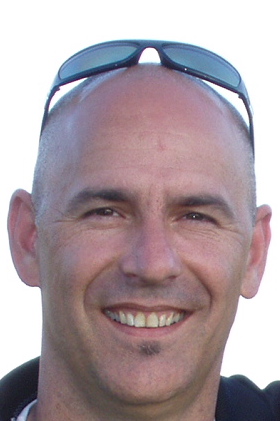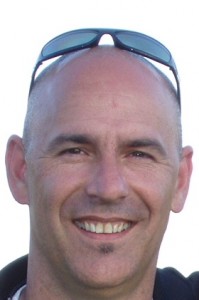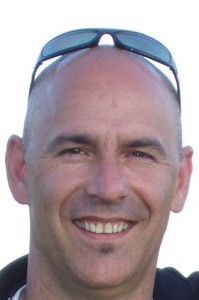By Casey Cosgrove
 BURLINGTON, ON October 19, 2011 – It may just be me, but the city feels remarkably quiet and calm this week. The provincial election is over, and we will have a respite of three years or so (we hope) before going to the ballot box again in Burlington. In the past year, we have elected those people that Burlington wished to see as its representatives, our political leaders on three fronts – provincially, federally, and on the municipal scene. I know many friends and colleagues that are looking forward to the time off to re-energize. BURLINGTON, ON October 19, 2011 – It may just be me, but the city feels remarkably quiet and calm this week. The provincial election is over, and we will have a respite of three years or so (we hope) before going to the ballot box again in Burlington. In the past year, we have elected those people that Burlington wished to see as its representatives, our political leaders on three fronts – provincially, federally, and on the municipal scene. I know many friends and colleagues that are looking forward to the time off to re-energize.
Things seem too good to be true here at home. The ‘mistake on the lake’ (pier) is on the right path, we have a lovely new performing arts centre opening downtown soon, the hospital development and mid-peninsula highway issues are in the hands of the ‘right’ provincial government – things just seem so, well, suburban.
 Believe me, as a director of an organization that does work with low-income families across Canada, Halton was a tough place to get partners. It was as if people here didn’t want to recognize that poverty exists. I live here and know it does. I see no signs of ‘Occupy Burlington’ on the horizon either. This time of relative ‘peace’ begs the question – What are the ‘burning issues’ that will affect Burlingtonians over the next while? Of course there are always things to do, ‘one-off’ problems to solve here in the city, but what will occupy the news in the coming months? Perhaps it will be another fight to preserve lakefront or green space, the protection of a piece of Burlington history, another possible sports franchise relocation, or maybe even a good old-fashioned political scandal! One never knows, and it is just this that would make having a crystal ball so wonderful!
No matter what dominates the news, when I wear my ‘community engagement’ or ‘leadership prof’ hat, I see this as just the right period in time for new leaders to surface here in the city. Yes, leaders often emerge in crisis, but it is also these ‘quiet times’ that allow civic minded people to take on a cause near and dear to them, and to plant the seeds to dealing with an important local issue. Take Mina Wahidi, and her building of the Compassion Society of Halton a few years back. This was a terrific example of leadership in action right here in the community, and was not done with interest of seeking political office. This was community leadership in its purest form. As a lifelong resident of the city, I do have my own wish list of areas that I would like to see local leadership emerge.
First and foremost, I would like to see genuine recognition that poverty exists here, and then see something done about it. Believe me, as a director of an organization that does work with low-income families across Canada, Halton was a tough place to get partners. It was as if people here didn’t want to recognize that poverty exists. I live here and know it does. The way I see it, many people that are consumed by taxes and their own pocketbook took the opportunity to vote here in Burlington last week, with a predictable local result. Now it’s time to get involved, and the best way would be to step outside ones comfort zone and better understand and see that there are a lot of people ‘hurting’ close to home. I believe that there is a great potential for people to step-up as leaders in the fight against poverty here in Halton, and hope to see it on the radar.
The other area that I believe has excellent growth potential in terms of local leadership involve seniors and youth – both individually and collectively. Imagine a community that not only honours its most senior members (which we have in great numbers), but works closely and actively with them in building community. Imagine a community that builds leadership in their young people ‘on purpose’, inspires them to be leaders no matter where their personal journey takes them. Utilizing these two local riches (seniors and youth) both individually and with a number of inter-generational approaches not only contributes to the development and growth of the people involved, but most certainly to the community as a whole. We hear the word leadership used a lot during elections, but it is this ‘quiet’ period of time in between elections where we should be focused on developing and encouraging emerging local leaders. Lets get at ‘er.

By Casey Cosgrove
 BURLINGTON, ON October 12, 2011 While driving to a hockey game on the weekend, my 11 year-old son Jack was asking a number of questions related to last Thursdays provincial election after seeing a number of signs still in the ground. Jack asked who won, which person I voted for, why, and about the differences between the candidates that were running. BURLINGTON, ON October 12, 2011 While driving to a hockey game on the weekend, my 11 year-old son Jack was asking a number of questions related to last Thursdays provincial election after seeing a number of signs still in the ground. Jack asked who won, which person I voted for, why, and about the differences between the candidates that were running.
This is the same child who has said on more than one occasion that he will either become an entrepreneur, or the mayor Burlington, he just hasn’t made up his mind yet. Jack says that the only part of being mayor that he does not like is the ‘talking’ part. Some would say this would be a welcome new style for politicians, and may garner a few votes. I love his curiosity on the subject, and since he is the only one in my family who will talk ‘politics’ with me, I was more than willing to engage in such banter during this most precious of time we share so often together – driving to hockey.
I did my best to give Jack a father’s version’ of Burlington politics 101, and tried to do so letting my own preferences and leanings influence the basic conversation as little as possible, which frankly, I found quite difficult to do. I explained that some people voted strictly for a political party, some for a candidate, others for an issue, and many others for some combination of the above. I also explained that some people simply do not vote, and shared some of my thoughts on why that continues to be an issue not just here in Burlington, but also in Ontario, and in Canada.
 I thought about giving him a 'canned' spiel about how we want to be represented by the person who shares our values and positions on key issues, but decided I want going to fill my sons head with empty clichés that may not mean much to him at this age and stage in his life. I also generally avoid feeding my kids a lot of BS. I also relayed the fact that the winner of this election would represent us (and Burlington) in the Legislature, and some basic points about what that entailed. Yet, it was Jacks final question that really caused me to stop and think. He asked ‘ Dad, what difference does it really make for Burlington who you voted for or which person represents us’?
I hesitated, told Jack it was a good question, and asked if he would give me a minute to think about it. I thought about giving him a ‘canned’ spiel about how we want to be represented by the person who shares our values and positions on key issues, but decided I want going to fill my sons head with empty clichés that may not mean much to him at this age and stage in his life. I also generally avoid feeding my kids a lot of BS. By now I knew that Burlington would again be represented by the Progressive Conservatives and Jane McKenna at Queens Park, and for the third straight term, our voice will be on display from a ‘back seat’ of the opposition benches.
I thought about discussing the many promises that were made during the election 4 years ago that were broken, but didn’t want to disillusion the boy by explaining to him that things said during a campaign don’t always translate into action. It crossed my mind to try to explain that a particular candidate would have been able to influence the new McGuinty government to move on something such as the hospital re-development more than the other candidates should they win, but I’m not sure that would have been an accurate statement given where they are in that process, and how much of the hard work and advocacy has already been done.
I thought about telling Jack that each of the candidates would have pushed and advocated for ‘different’ things with the government, but that Burlington is not a place that any government in my lifetime has seen as a priority in any way shape or form, so we would still be waiting in line.
The more I thought about it, the more I realized that I didn’t have a solid answer to his question. It was this simple question that stumped me when I really thought about it. However, when your 11-year old asks you a question, it is only polite to have a reply, so I said ‘ Jack, do you want to stop for a donut before we get to the arena?’ He smiled, nodded, and the topic has not come up again since. With any luck, it won’t again for a few years.

By Casey Cosgrove
 BURLINGTON, ON October 5, 2011 – For the last six -weeks, a process has been underway that is aimed at influencing who we cast our ballot for in tomorrows provincial election. What should we expect from this election process? Is it naive to expect spirited debate on the issues, clear communication about candidates ideas and vision, and perhaps a firm handshake at the front door? Or, have we just become accustomed to, and accepted the fact that campaigns leading into elections are dominated by negativity, ‘spin’, attack ads, smear campaigns, and avoiding responsibility? BURLINGTON, ON October 5, 2011 – For the last six -weeks, a process has been underway that is aimed at influencing who we cast our ballot for in tomorrows provincial election. What should we expect from this election process? Is it naive to expect spirited debate on the issues, clear communication about candidates ideas and vision, and perhaps a firm handshake at the front door? Or, have we just become accustomed to, and accepted the fact that campaigns leading into elections are dominated by negativity, ‘spin’, attack ads, smear campaigns, and avoiding responsibility?
Elections are a great opportunity for aspiring ‘leaders’ to actually show leadership, to show vision, but instead, they have become a very ugly, tactical, 6-week communications battleground aimed at swaying voters. Getting elected is the only focus it seems.
 I would have liked more debate on the issues, less 'smoke and mirrors', fewer 'attack ads', more 'taking of responsibility' from the sitting government, and a little bit of 'giving credit' from the 'challengers. In the past six weeks, we have watched a Premier that is unwilling to acknowledge the mistakes he has made in the past eight years, as if everything has been just fine in Ontario. Voters may be willing to forgive, but the liberal strategy to simply ignore the mistakes, and hope people forget by the time they go to the polls, is not an accident. Perhaps it is just not good ‘politics’ to take ownership of the things that did not go well, but it is good leadership.
We have seen challenger Tim Hudak obsess over the Premier, forgetting that voters want to know if he has any ideas of his own. If you look at the refusal of the Burlington Post and Toronto Sun to endorse his party, it is clear that the jury is still out, even among those that normally support the PC’s. It seems Hudak has waged his whole campaign on ‘don’t vote for the other guy’, and this is not resonating with Ontarians. We also saw Hudak spend way too much time and attention on a small program that he referred to as an ‘affirmative action program for foreign workers’. These issues are distractions simply used strategically to knock the other candidate off their game, but I think Hudak erred on this one. With an 11 point lead in the polls last summer, Hudak may have been better off not campaigning at all.
The NDP leader has fared well throughout the campaign, avoiding any costly gaffes. Few would argue that she is the most ‘likeable’ leader. Yet, a key question remains. Will Andrea Horwath be propped up by the outpouring of support the NDP has received over the past few months across Canada, or does the reluctance to forget the ‘Rae Years’ still exist among Ontarians ? It seems few are giving the NDP a real chance to govern, but they have run a solid campaign, will have improved numbers, and could hold the balance of power in the Legislature.
Locally, we have even less to go on from those competing to become Burlington’s next MPP. We have seen a Conservative candidate that has been all but hiding, sharing very little about herself, her credentials, or her past accomplishments. Jane McKenna’s campaign website is a basic PC party template with very little about her or Burlington, and is just another vehicle for the overall party platform Hudak has set out. Her brochures are mostly about McGuinty, with little about McKenna. They are banking in the fact that Burlingtonians will simply vote for the political party, and don’t care to know more about the person who may become their representative in the Legislature.
The Liberal candidate, Karmel Sakran, has a more impressive list of accomplishments and credentials to share with voters, but at times has also relied on touting the ‘accomplishments’ of the Liberals and their leader, which may not resonate. Voters are upset with McGuinty. Sakran has enough substance and community connection to have distanced himself a little more in my opinion, and has shown focus on two key local issues – the hospital redevelopment and stopping the mid-peninsula highway from paving across our escarpment.
The NDP candidate, Peggy Russell, showed the most balance in trying to connect voters to herself, her party, and its leader, and she has been elected here before, as a Trustee. This is a much bigger job, a larger stage.
If the majority of voters here cast their ballot for ‘party-first’, we will see another PC candidate claim victory here, as the PC brand has shown 60+ years of staying power in this community. If voters take a long look at the accomplishments and credentials of those seeking office here in Burlington, we will likely have a Liberal or NDP candidate representing this community.
I would have liked more debate on the issues, less ‘smoke and mirrors’, fewer ‘attack ads’, more ‘taking of responsibility’ from the sitting government, and a little bit of ‘giving credit’ from the ‘challengers. Is it too much to expect clear, honest, communication about the ideas, platform, and vision of each candidate, and their party? Apparently, that is asking too much. However, I will still be casting my ballot tomorrow, as it is my cherished right to have my say in who governs us. Whether the candidate I support is elected here or not, I will at least know that I shared my voice in the process, and will support them in their new role as MPP for the riding of Burlington.

|
|
 BURLINGTON, ON October 19, 2011 – It may just be me, but the city feels remarkably quiet and calm this week. The provincial election is over, and we will have a respite of three years or so (we hope) before going to the ballot box again in Burlington. In the past year, we have elected those people that Burlington wished to see as its representatives, our political leaders on three fronts – provincially, federally, and on the municipal scene. I know many friends and colleagues that are looking forward to the time off to re-energize.
BURLINGTON, ON October 19, 2011 – It may just be me, but the city feels remarkably quiet and calm this week. The provincial election is over, and we will have a respite of three years or so (we hope) before going to the ballot box again in Burlington. In the past year, we have elected those people that Burlington wished to see as its representatives, our political leaders on three fronts – provincially, federally, and on the municipal scene. I know many friends and colleagues that are looking forward to the time off to re-energize.






















